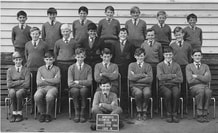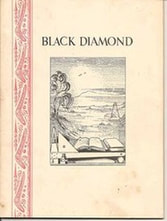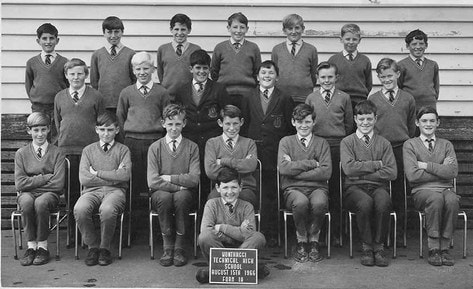
IN 1966, the year I started at the Wonthaggi Technical and High School, Australia changed to decimal currency and the modern Aboriginal land rights movement began when 200 Aboriginies at Wave Hill cattle station went on strike for equal pay.
We Australians owned the postal and telephone systems, gas, electricity, railways, a shipping line, an airline and a bank. You could invest money in state infrastructure and get 5.25 per cent interest, government guaranteed. Wonthaggi manufactured clothing, agricultural machinery, cotton products and quality tools, and everyone had a job.
Despite the disapproval of church and family members, more people were marrying out of their religion as ordinary people declared a truce between Protestants and Catholics.
The transistor radio was liberating teenagers from their parents’ wireless set. The Monkeys and Beachboys made us “daydream believers”. The Seekers encouraged a huge teenage generation with no memory of war or depression to embrace “changing and rearranging ourselves”.
In other ways, however, we were still living in the Menzies era. Cigarette smokers on TV ads were glamorous, sophisticated and successful. Sunbaking was a popular pastime. Kids burnt and peeled and burnt again. Being gay was a criminal offence.
In Melbourne, John and David Langley were fined $650 each – the equivalent of about $7500 now – for throwing paint bombs at President Lyndon Johnson’s car. When the Prime Minister, Harold Holt, announced a trebling of Australian forces in Vietnam, the Pugh family decided to move from Wonthaggi back to England so their eight sons wouldn’t be sent to fight in Vietnam. The parents had seen too much of war.
At Monday morning assembly at Wonthaggi Tech-High, we put our right hand over our hearts and recited “I love God and my country. I will honour the flag. l will serve the Queen and chiefly obey my parents, teachers and the laws.” (Years later, we realised it was "cheerfully".) Then God Save the Queen played over a crackling PA system.
Girls were confined to the quadrangle unless going to the canteen, and boys weren’t allowed to talk to the girls. Bullying was a fact of life, from some teachers down the hierarchy to the smallest and poorest. Kelvin Adams, who arrived in year 9, told me the brutality was "much the same" as in his English school. Gary Bolding was told by a teacher to "go home and associated with dirty coalminers".
Italians were tolerated and, to my surprise, John Storti, the son of Italian migrants, was elected a school prefect at Wonthaggi High. The school captains in 1966 were cousins Roy Hamilton and Marion Chambers, who were respected not just for their character but also for their clan’s clear-headed leadership and contribution to the community.
On rainy lunchtimes, the school librarian, Lyn Chambers, would let us into a vast Aladdin’s cave of National Geographics and two sets of Encyclopedia Britannica. I had never been in a library and books became escape hatches or time machines to other worlds and times.
 Black Diamond, the magazine of the Wonthaggi Technical and High School, 1966. The cover features a drawing by Jim Glover, a teacher of the time, of tools of learning against a backdrop of mine poppet head, gullies and views to Cape Woolamai,
Black Diamond, the magazine of the Wonthaggi Technical and High School, 1966. The cover features a drawing by Jim Glover, a teacher of the time, of tools of learning against a backdrop of mine poppet head, gullies and views to Cape Woolamai, Few teachers wanted to be sent to Wonthaggi. Consequently we had those who didn’t know better or couldn’t get jobs elsewhere, either because of incompetence or foreignness. There were Mr Hilderbrand and Mr Niesen from Germany, Monsieur De la Valliere from France, a Calabrian, some Americans and Mr Zentay from Hungary. Our English teacher, Miss Leonard, was 21. Jim Glover, who seemed 70 to us, could speak at length on the derivation and meaning of words. He was a pioneering environmentalist who showed us the subtle beauty of what was then dismissed as "scrub".
A plodding old science teacher, Stan Cackett, grew up in an era when recounting the past was a skill and pastime, and could be steered into telling of his travels. As a child, he had seen a German Zeppelin catch fire and crash. “It lit the night bright enough to read by.” We spent more than one science lesson absorbed far away from boring Wonthaggi.
The `60s finally came to Wonthaggi with the new young teachers who arrived in 1968. They didn’t use abuse, bullying or violence as teaching aids. One teacher, Alan Railton, aged 23, pulled up with a surfboard on a VW Beetle. He brought a reel-to-reel music player to our maths class and played the best of the top 40. Alan went on to teach the children and grandchildren of his early pupils. "It wasn't work," he says. "I loved it."
Some teachers were dry and formal, but we also had the eccentrics, the wackos, the cynical and the angry. Some threw chalk or dusters at inattentive students. Mr Lewis, my year 7 form teacher, made a kid in my class cry then consoled him by gently putting his arm around him and quietly saying “Don’t cry, laddie, be happy”. The kid cracked up and so did the rest of us.
Gary Kavagnh was in a clay modelling class on his first day of secondary schooling when the teacher Mr Lewis saw a piece of clay on the floor the size of a ten cent piece. Nobody put their hand up to take responsibility for it so the whole class got the strap.
This collective punishment also happened to my class twice. For us catholic kids it was not a big deal but I will never forget the look of condemned terror on the faces of kids who had come from the peaceful one-teacher schools like Glen Alvie and Krowera.
There were a few good male teachers. John Lindsay taught kids to swim and, by example, how to be in the world. Bill Robertson came to Wonthaggi Tech-High reluctantly in 1967. The following year he was elected mayor of Wonthaggi and is still here today.
In science, we were told “Don’t throw the asbestos mats – it’s dangerous”, although no one knew why. We collected blobs of mercury from broken thermometers to roll around in our hands. (I heard recently that a science class was evacuated when a thermometer broke.)
In 1968, a Teachers Union anti-war leaflet went around the school. The local press criticised a humanities teacher, Ian R Osborne, for being a conscientious objector. He taught for only one term. When a teenager who lacked the warrior instinct asked at the post office for a form to register as a conscientious objector, he was told he should be ashamed of himself.
Early in 1968, by which time about 3000 American soldiers had been killed in Vietnam, an army recruitment officer came to the tech school to persuade us predominantly working class kids, including the sons of the soon-to-be-unemployed coalminers, to do an apprenticeship in the army. The officer wore an immaculate uniform with lots of medals and colourful ribbons. His shoes looked like black enamel.
Pacing stiffly backwards and forwards across the room, with his hands behind his back, sometimes inspecting the floor boards, he spoke in a stern regimental voice. He played us a film about army apprenticeships and all the benefits: free medical and dental care and adult pay at 17. “Any questions?” the officer asked.
When Doug Langankey put up his hand, there were a few smiles. Doug was one of the funniest kids in the school. Wearing his signature smile, he acknowledged all the positive benefits of army life and politely enquired if, after signing up, we would end up in Vietnam.
The officer shot Doug a mean look. A roomful of kids watched intently while he assessed the situation, before retreating with some meaningless phrases. It was one tiny victory for a teenager and one step towards scepticism for a roomful of kids.
In other circumstances, Doug might have been ideal recruiting material. He and his brother Will were inmates at St Paul’s Boys Home at Newhaven, an institution as mean and tough as the others of the era. The brothers were legends. In the face of painful punishment, they never neglected their calling to entertain their classmates, fellow travellers on the school bus or the whole school whenever the opportunity arose. Despite numerous cuts, Doug wore a perpetual, contagious smile. It particularly annoyed one teacher, Clint Shields, who constantly commanded, “Wipe that smile off your face, Langankey!”
In 1969, the high school move to Dudley, leaving the tech school at the McBride campus. The new tech principal, Keith Wilson, was a former military man who believed in the British Empire. I never saw him smile. In retirement, he wrote a letter to the Sentinel-Times saying those who wanted to replace the Christian crosses on our flag with plants or animals were “godless”. His third in command, Tom ‘Brute’ Gould, a maths teacher, told our year 10 class that war was “good for the economy … it gets rid of the dead wood and invigorates people”.
After a summer of surf, beach and bush daydreaming, returning to school in February in long pants, black shoes, socks and tie was like going to jail in hell. Brute would stand us in the heat of an enclosed, shadeless, black asphalt quadrangle and yell “SCHOOL – A-tennn-shun!” while we snapped to attention and saluted the flag. We had to repeat it over and over till he was satisfied we all had it precisely. Bags Legg and Brian Cummings didn’t display enough enthusiasm and were dragged out the front and yelled at in front of the whole school.
John Gains, Mick Bolding, Lance Webster, Tom Eurell Jnr and others were effectively hounded out of school in year 10. I remember John Gains – later a Bass Coast mayor – describing school as a dictatorship.
The motor mechanics teacher, Clint Shields, had been in New Guinea and Japan during the war. He looked so angry that he even scared the young teaching staff. At morning and afternoon assembly, with hands behind his back, he walked up and down like a sergeant, inspecting each student’s uniform and shoes. Kevin Hill got a blast for wearing runners, even though it was sports day. A quiet new kid, James Chambers, copped it for a sunhat that he claimed some doctor had told him to wear. If your hair touched your collar, you were dragged out the front and abused. Mr Shields even put the school mothers club “in their place”.
By 1971, 11,000 young Australian men had refused to register for national service. One hundred and fifty police raided Monash University looking for a radio transmitter sending anti-war messages. A student anti-war protestor was found dead in a Melbourne police cell. That year, when we were taught the maths formula connecting altitude, speed, distance and time from target for dropping bombs from aeroplanes, Paul Cummings and I exchanged looks.
That summer, Paul and I carted hay for Ernie Ireland at Dalyston, then I got a job managing the petrol station at Cape over the holidays. I also had a night job at the Country Style bakery in Watt Street. I was glad my school days were over.

October 26, 2014
Thanks Frank for your vivid snapshot of the late 60s and early 70s at Wonthaggi Tech-High. Your recollections and vignettes of students and teachers beautifully captured the deeply conservative attitudes that prevailed in Australia and permeated school life, starting with saluting God, Queen and Country at the start of every week. I love the way you allude to the change that is soon to come; a change from a regulated, regimented world to a progressively deregulated one. You reminded me how scary it was that local boys we knew were being sent off to fight in the Vietnam War and how grateful I was when Gough got elected and brought them home. Frank's article is certainly one for the archives.
Linda Cuttriss, Ventnor
October 26, 2014
I enjoyed Frank's latest contribution to the Bass Coast Post. I was wondering if you wouldn't mind sending Frank my email address as I would like to send him a copy of my memoirs from my time at Kooweerup High School. I also started my secondary education in 1966 and so some of the things I covered overlapped Frank's experiences.
Peter Boekel